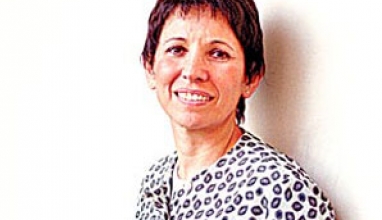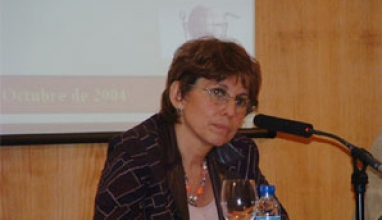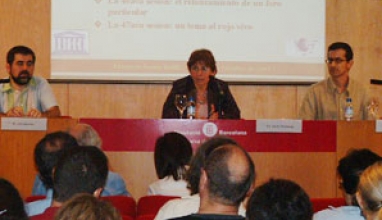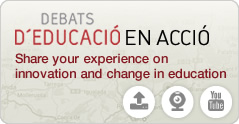You are here
The young and the education of the future
About the speaker
Cecilia Braslavsky
Director of UNESCO's International Bureau of Education in Geneva
Since 1934, UNESCO's International Bureau of Education has organised the International Conference on Education (ICE), a worldwide forum to establish dialogue between education ministers, though it also includes researchers, practitioners and representatives of intergovernmental and non-governmental organisations. The 47th ICE took place in Geneva from September 8 to 11 2004 under the title "Quality education for all young people: Challenges, trends and priorities", and its definitive aim was to study the ways to reform education, and secondary education in particular, and to adapt it to the individual and collective needs of the young and the socio-economic realities of the 21st century.
In its conclusions, the ministers of education present set out ten challenges for the future, which are based, above all, on the fact that more than half of the world's population is under 25 years of age, which means it is the future generations that will have to improve the quality of education - a factor that cannot be addressed on a national level only, instead having to be addressed on a global level. These challenges include improving aspects such as innovation, quality, basic support for the family, gender equality or broadcasting of the democratic culture in order to achieve competencies for life in the future.
Discover
other ideas
-

Education, learning and technology in the knowledg...
Manuel Castells
2004 -

Policy Priorities for Equal Educational Opportunit...
Xavier Bonal Sarró, Ferran Ferrer Julià and Miquel Àngel Essomba Gilabert
2004 -

Education of the future and values
Javier Elzo
2004









 The texts published on this website are, unless otherwise indicated, covered by the Creative Commons Spain Attribution - Non Commercial - No Derivs 3.0 licence. You may copy, distribute and transmit the work, provided you attribute it (authorship, journal name, publisher) in the manner specified by the author(s) or licensor(s). You may not use the material for commercial purposes. You may not transmit any derivative work from this material. The full text of the licence can be consulted here:
The texts published on this website are, unless otherwise indicated, covered by the Creative Commons Spain Attribution - Non Commercial - No Derivs 3.0 licence. You may copy, distribute and transmit the work, provided you attribute it (authorship, journal name, publisher) in the manner specified by the author(s) or licensor(s). You may not use the material for commercial purposes. You may not transmit any derivative work from this material. The full text of the licence can be consulted here: